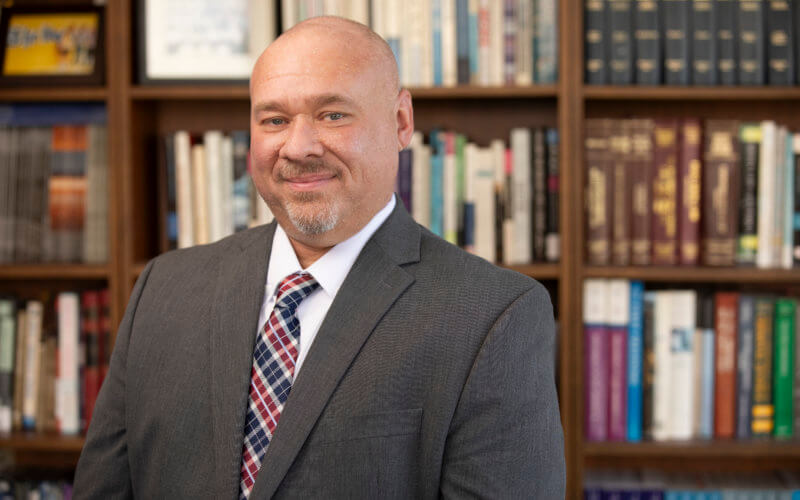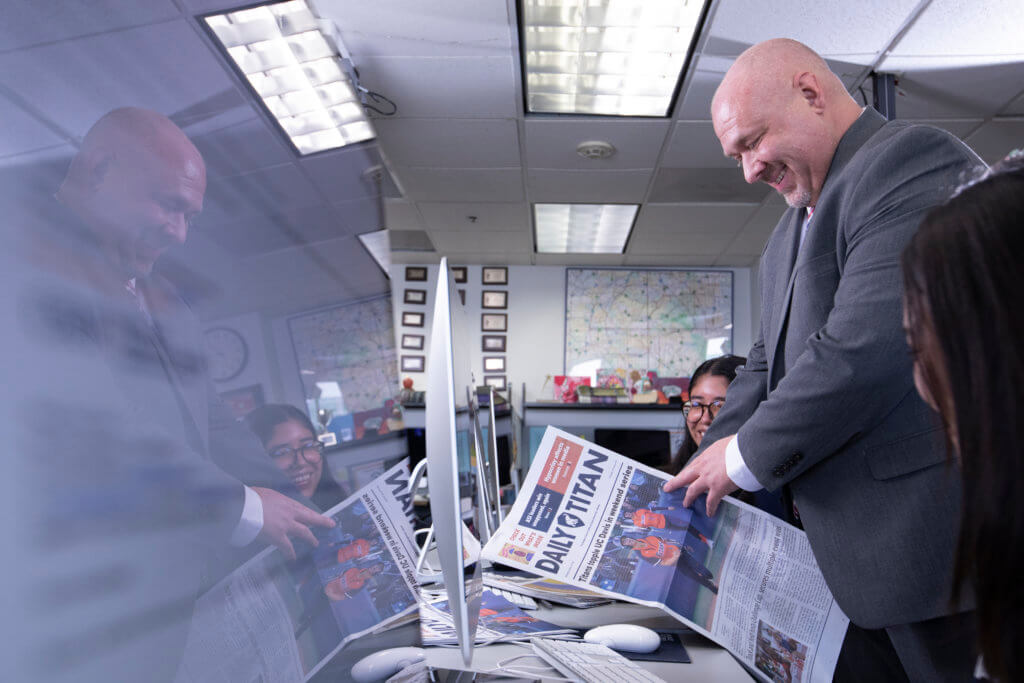
There was only one career path Jason Shepard ever saw himself pursuing.
“Since I was a kid, I wanted to be a journalist,” said Shepard. “I loved that journalism was an opportunity to learn more about the world, other people and how decisions are made.”
Not only did Shepard fulfill his goal of becoming an award-winning reporter — covering crime, courts, politics, education and media for 10 years — but he also found a new passion in teaching and research that led him to Cal State Fullerton.
The chair and professor of communications is now a media law and First Amendment expert whose academic scholarship looks at a variety of trending topics, including legal protections for journalists, ethics and the regulation of social media.
Throughout his career, Shepard has contributed his expertise to more than 120 publications and presentations. In addition to publishing his work in academic journals like the Yale Journal of Law and Technology, Communication Law and Policy, and Journal of Media Law & Ethics, Shepard’s been interviewed and quoted by several media outlets, such as The New York Times, CNN and NPR.
He’s also been tapped as an expert witness in multiple court cases, and he was recently invited to attend oral arguments for two First Amendment cases at the U.S. Supreme Court in Washington, D.C. The cases, NetChoice v. Paxton and Moody v. NetChoice, examine whether states can regulate how social media companies moderate their content, including disinformation, harassment and hate speech.
“These experiences allow me to share real-world stories that bring these issues, people and institutions to life, and that helps me better connect with my students,” said Shepard, who covered the arguments for California Publisher, the publication of the California News Association.
Keeping Up With First Amendment Issues
“Studying the First Amendment is critically important in thinking about how we meet the current demands in our democracy today,” said Shepard.
Early in his reporting career, Shepard investigated firefighters caught up in an undercover drug sting at a local bar. He received documents about the investigation from a confidential source and was later subpoenaed to reveal who gave him that information.
“I learned the hard way that journalists don’t always have strong legal protections when it comes to court subpoenas,” said Shepard, who turned this experience into an early research interest and the basis for his first book, “Privileging the Press.”

Since Shepard first started studying freedom of speech, the national narrative in communications has shifted significantly, which has inspired the evolution of his research areas. In today’s political and social climate, media consumers are very polarized, explained Shepard.
This is partly because people receive their information in “echo chambers,” which are closed communications environments that reinforce consumers’ beliefs and can discourage them from exploring other viewpoints.
He’s dedicated his research to understanding not only the role of the First Amendment in American politics and communications, but also the limitations of the amendment and the impact it has on a democratic society. Some of his recent scholarship looks at such topics as journalism ethics in the internet era, free speech in college newspapers, and the First Amendment and the roots of LGBTQ+ rights law.
On campus, he serves as the publisher for the student-run award-winning newspaper, the Daily Titan. A former college journalist and student media adviser himself, Shepard knows firsthand that participating in student media programs bolsters career portfolios and provides hands-on communications experience.
“Being able to support student media is a highlight of my job because I know that the experiences our students have in student media are going to have lifelong impacts,” said Shepard.